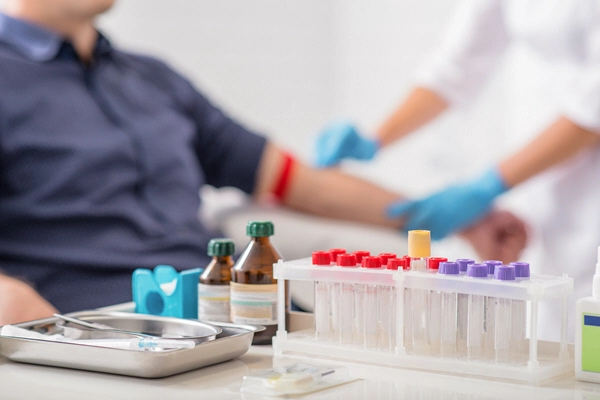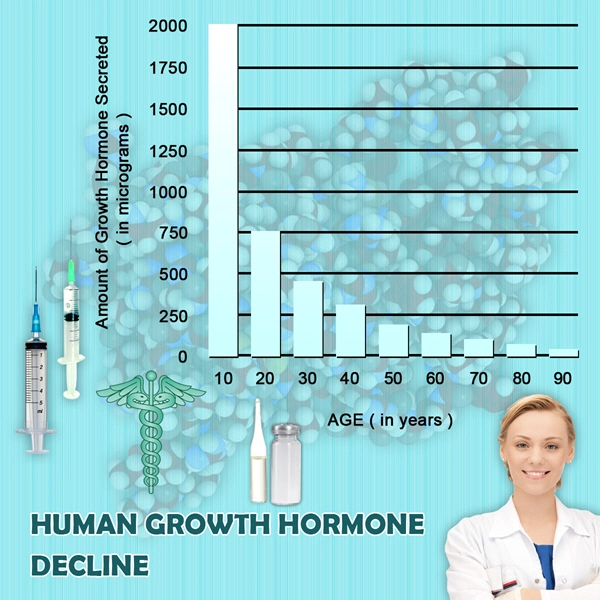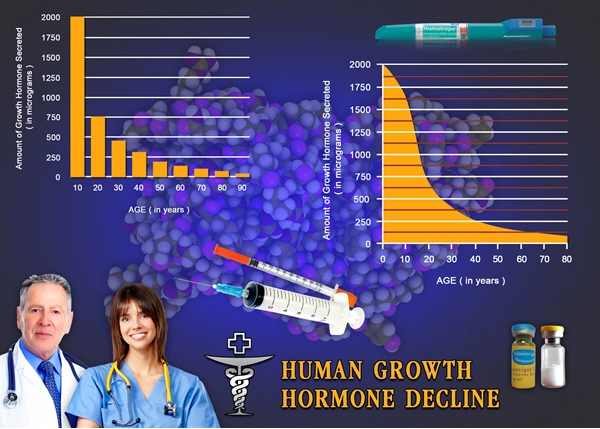Introduction
Obesity is a major health concern in the United States, particularly among American males, contributing significantly to the incidence of various diseases, including cancer. Recent research has begun to explore the potential of semaglutide, a glucagon-like peptide-1 (GLP-1) receptor agonist, in not only managing obesity but also in reducing the risk of cancer. This article delves into the current understanding of semaglutide's effects on cancer risk, focusing on its potential protective benefits for American males battling obesity.
The Obesity-Cancer Connection
Obesity is a well-established risk factor for several types of cancer, including colorectal, pancreatic, and liver cancers. The mechanisms linking obesity to cancer are multifaceted, involving chronic inflammation, insulin resistance, and alterations in adipokine levels. For American males, who have a higher prevalence of obesity compared to their female counterparts, the risk of developing obesity-related cancers is particularly concerning.
Semaglutide: A Promising Therapeutic Agent
Semaglutide, initially developed for the management of type 2 diabetes, has shown significant efficacy in promoting weight loss. As a GLP-1 receptor agonist, it enhances insulin secretion, suppresses appetite, and slows gastric emptying, leading to reduced caloric intake and subsequent weight loss. Given the strong link between obesity and cancer, the potential of semaglutide to mitigate cancer risk through weight management is a compelling area of research.
Evidence of Cancer Risk Reduction
Emerging studies suggest that semaglutide may have direct and indirect effects on cancer risk. Indirectly, by facilitating significant weight loss, semaglutide can reduce the obesity-related risk factors that contribute to cancer development. Directly, semaglutide may influence cancer pathways by modulating inflammation and insulin resistance, both of which are implicated in carcinogenesis.
A recent meta-analysis of clinical trials involving semaglutide reported a notable decrease in the incidence of certain cancers among participants, particularly those with a higher baseline body mass index (BMI). While these findings are promising, it is essential to interpret them with caution, as the studies were primarily designed to assess the drug's impact on diabetes and weight loss, not cancer prevention.
Mechanisms of Action
The potential protective effects of semaglutide against cancer may be attributed to several mechanisms. Firstly, weight loss induced by semaglutide can lead to a reduction in adipose tissue, which is a source of pro-inflammatory cytokines. Secondly, semaglutide improves insulin sensitivity, thereby reducing hyperinsulinemia, a known risk factor for cancer. Lastly, semaglutide may exert anti-inflammatory effects, further contributing to its potential cancer-protective properties.
Implications for American Males
For American males struggling with obesity, the dual benefits of semaglutide in managing weight and potentially reducing cancer risk are particularly relevant. Given the higher prevalence of obesity and related health issues in this demographic, semaglutide could represent a valuable tool in preventive healthcare. However, further research is needed to confirm these benefits and to understand the long-term effects of semaglutide on cancer incidence.
Challenges and Future Directions
While the initial findings are encouraging, several challenges remain. The current evidence is primarily derived from short-term studies, and the long-term impact of semaglutide on cancer risk remains unclear. Additionally, the optimal dosage and duration of treatment for achieving cancer risk reduction need to be established. Future research should focus on large-scale, long-term studies specifically designed to assess the impact of semaglutide on cancer incidence in American males with obesity.
Conclusion
Semaglutide holds promise as a multifaceted therapeutic agent that may not only aid in weight management but also contribute to reducing cancer risk among American males with obesity. As research progresses, it is crucial to continue exploring the full potential of semaglutide, ensuring that its benefits are maximized while minimizing any potential risks. For American males, the integration of semaglutide into obesity management strategies could represent a significant step forward in the fight against obesity-related cancers.

- Unlocking the Potential of Semaglutide: A Ground-Breaking Advance in Diabetes Management and Weight Loss [Last Updated On: February 25th, 2025] [Originally Added On: February 25th, 2025]
- Journey of a Game Changer: Semaglutide from Laboratory Conception to Therapeutic Application [Last Updated On: February 26th, 2025] [Originally Added On: February 26th, 2025]
- Unlocking the Secrets of Semaglutide: An In-depth Exploration of GLP-1 Science [Last Updated On: February 27th, 2025] [Originally Added On: February 27th, 2025]
- The Revolutionary Role of Semaglutide in Metabolism Management: A Step Beyond Blood Sugar [Last Updated On: February 28th, 2025] [Originally Added On: February 28th, 2025]
- The Battle of Biochemicals: Spotlight on Semaglutide vs Other GLP-1 Agonists in 2024 [Last Updated On: February 28th, 2025] [Originally Added On: February 28th, 2025]
- Revolutionizing Diabetes Management: Spearheading Change with Semaglutide [Last Updated On: March 1st, 2025] [Originally Added On: March 1st, 2025]
- Revolutionizing Patient Healing: The Semaglutide Miracle [Last Updated On: March 2nd, 2025] [Originally Added On: March 2nd, 2025]
- Semaglutide: Preserving Beta-Cell Function in American Males with Type 2 Diabetes [Last Updated On: March 3rd, 2025] [Originally Added On: March 3rd, 2025]
- Exploring Semaglutide: A Comprehensive Guide to Its Use in Weight Management and Type 2 Diabetes Treatment [Last Updated On: March 3rd, 2025] [Originally Added On: March 3rd, 2025]
- Semaglutide: Managing Diabetes and Obesity with Ozempic and Wegovy [Last Updated On: March 4th, 2025] [Originally Added On: March 4th, 2025]
- Semaglutide: Managing Diabetes and Obesity in American Men [Last Updated On: March 4th, 2025] [Originally Added On: March 4th, 2025]
- Exploring Semaglutide's Role in Cardiovascular Health and Diabetes Management [Last Updated On: March 5th, 2025] [Originally Added On: March 5th, 2025]
- Semaglutide's Impact on Type 2 Diabetes and Obesity in American Males [Last Updated On: March 6th, 2025] [Originally Added On: March 6th, 2025]
- Optimizing Semaglutide Dosing for Weight Loss in American Men: A Comprehensive Guide [Last Updated On: March 7th, 2025] [Originally Added On: March 7th, 2025]
- Exploring the Efficacy and Convenience of Oral and Injectable Semaglutide for American Males [Last Updated On: March 7th, 2025] [Originally Added On: March 7th, 2025]
- Semaglutide for Type 2 Diabetes: Side Effects, Safety, and Considerations for American Males [Last Updated On: March 8th, 2025] [Originally Added On: March 8th, 2025]
- Semaglutide: Revolutionizing Obesity Management for American Men Through Hormonal Mimicry [Last Updated On: March 9th, 2025] [Originally Added On: March 9th, 2025]
- Unpacking the Economic Implications of Semaglutide: A Comprehensive Analysis on Cost, Coverage, and Value for American Males [Last Updated On: March 12th, 2025] [Originally Added On: March 12th, 2025]
- Real-World Insights: The Impact of Semaglutide on American Men's Health [Last Updated On: March 13th, 2025] [Originally Added On: March 13th, 2025]
- Exploring the Impact of Semaglutide on Metabolic Syndrome: A Detailed Analysis for American Males [Last Updated On: March 15th, 2025] [Originally Added On: March 15th, 2025]
- Semaglutide: A Game-Changer for American Men in Managing Type 2 Diabetes and HbA1c [Last Updated On: March 16th, 2025] [Originally Added On: March 16th, 2025]
- Semaglutide: Revolutionizing Appetite Control for American Males' Weight Management [Last Updated On: March 17th, 2025] [Originally Added On: March 17th, 2025]
- GLP-1 Therapy Evolution: Semaglutide to Multi-Hormone Agonists and Beyond [Last Updated On: March 19th, 2025] [Originally Added On: March 19th, 2025]
- Semaglutide: Transforming Lives of American Men Through Weight Loss Success Stories [Last Updated On: March 19th, 2025] [Originally Added On: March 19th, 2025]
- Semaglutide in Primary Care: Benefits and Considerations for American Males with Type 2 Diabetes [Last Updated On: March 19th, 2025] [Originally Added On: March 19th, 2025]
- Semaglutide: Enhancing Cardiovascular Health in American Males Through Lipid Management [Last Updated On: March 19th, 2025] [Originally Added On: March 19th, 2025]
- Semaglutide's Anti-Inflammatory Benefits for American Males: Beyond Diabetes Management [Last Updated On: March 19th, 2025] [Originally Added On: March 19th, 2025]
- Semaglutide: Managing Type 2 Diabetes and Obesity in American Males [Last Updated On: March 19th, 2025] [Originally Added On: March 19th, 2025]
- Semaglutide and Insulin: Complementary Therapies for Diabetes Management in American Men [Last Updated On: March 20th, 2025] [Originally Added On: March 20th, 2025]
- Semaglutide: A Comprehensive Guide for American Males on Diabetes and Weight Management [Last Updated On: March 21st, 2025] [Originally Added On: March 21st, 2025]
- Semaglutide Innovations: Revolutionizing Diabetes and Obesity Management in American Males [Last Updated On: March 21st, 2025] [Originally Added On: March 21st, 2025]
- Personalizing Semaglutide Therapy for American Males: A Holistic Approach [Last Updated On: March 22nd, 2025] [Originally Added On: March 22nd, 2025]
- Semaglutide: Enhancing Weight Management in American Males via Satiety Hormones [Last Updated On: March 22nd, 2025] [Originally Added On: March 22nd, 2025]
- Managing Semaglutide Side Effects: Strategies for American Males [Last Updated On: March 22nd, 2025] [Originally Added On: March 22nd, 2025]
- Semaglutide and Exercise: Enhancing Health in American Males [Last Updated On: March 23rd, 2025] [Originally Added On: March 23rd, 2025]
- Semaglutide Therapy Guide for American Males: Steps to Manage Diabetes and Obesity [Last Updated On: March 23rd, 2025] [Originally Added On: March 23rd, 2025]
- Semaglutide: A Breakthrough in Obesity Treatment for American Men [Last Updated On: March 23rd, 2025] [Originally Added On: March 23rd, 2025]
- Semaglutide's Impact on Kidney Health in American Males with Type 2 Diabetes [Last Updated On: March 23rd, 2025] [Originally Added On: March 23rd, 2025]
- Semaglutide and Telemedicine: Revolutionizing Diabetes Management for American Males [Last Updated On: March 23rd, 2025] [Originally Added On: March 23rd, 2025]
- Semaglutide: Managing Diabetes and Weight Loss - A Guide for American Men [Last Updated On: March 23rd, 2025] [Originally Added On: March 23rd, 2025]
- Semaglutide's Anti-Inflammatory Benefits for American Males: Insights and Implications [Last Updated On: March 24th, 2025] [Originally Added On: March 24th, 2025]
- Semaglutide's Impact on Mental Health: Insights for American Males [Last Updated On: March 24th, 2025] [Originally Added On: March 24th, 2025]
- Semaglutide: Enhancing Energy and Vitality in American Males with Type 2 Diabetes [Last Updated On: March 24th, 2025] [Originally Added On: March 24th, 2025]
- Semaglutide: Enhancing Quality of Life for American Males with Diabetes and Obesity [Last Updated On: March 24th, 2025] [Originally Added On: March 24th, 2025]
- Semaglutide: Revolutionizing Diabetes and Obesity Management in American Males [Last Updated On: March 24th, 2025] [Originally Added On: March 24th, 2025]
- Semaglutide: Effective Diabetes and Obesity Treatment for American Males [Last Updated On: March 25th, 2025] [Originally Added On: March 25th, 2025]
- Semaglutide: Enhancing Health and Vitality in Aging American Males [Last Updated On: March 25th, 2025] [Originally Added On: March 25th, 2025]
- Semaglutide: Revolutionizing Diabetes and Weight Management in American Men [Last Updated On: March 25th, 2025] [Originally Added On: March 25th, 2025]
- Semaglutide: A Breakthrough in Weight Management for American Males [Last Updated On: March 25th, 2025] [Originally Added On: March 25th, 2025]
- Innovative Semaglutide Delivery Systems: Enhancing Diabetes and Obesity Management in American Males [Last Updated On: March 25th, 2025] [Originally Added On: March 25th, 2025]
- Semaglutide: Empowering American Men in Diabetes and Weight Management [Last Updated On: March 25th, 2025] [Originally Added On: March 25th, 2025]
- Semaglutide Enhances Sleep Quality in American Men with Diabetes: A Comprehensive Overview [Last Updated On: March 26th, 2025] [Originally Added On: March 26th, 2025]
- Semaglutide's Role in Interdisciplinary Care for American Males' Health [Last Updated On: March 26th, 2025] [Originally Added On: March 26th, 2025]
- Maximizing Semaglutide Benefits for American Males: Strategies and Insights [Last Updated On: March 26th, 2025] [Originally Added On: March 26th, 2025]
- Semaglutide Safety in American Males: Long-Term Effects and Considerations [Last Updated On: March 26th, 2025] [Originally Added On: March 26th, 2025]
- Semaglutide Reduces Inflammatory Markers in American Males: CRP, IL-6, TNF-α Impact [Last Updated On: March 26th, 2025] [Originally Added On: March 26th, 2025]
- Semaglutide: Transforming Obesity and Diabetes Perceptions in American Men [Last Updated On: March 26th, 2025] [Originally Added On: March 26th, 2025]
- Semaglutide: Revolutionizing Diabetes, Weight, and Cardiovascular Health in American Males [Last Updated On: March 26th, 2025] [Originally Added On: March 26th, 2025]
- Semaglutide's Real-World Impact on Diabetes and Weight Loss in American Males [Last Updated On: March 26th, 2025] [Originally Added On: March 26th, 2025]
- Semaglutide: Balancing Endocrine Health in American Males [Last Updated On: March 27th, 2025] [Originally Added On: March 27th, 2025]
- Semaglutide's Role in Managing Diabetes and Complications in American Males [Last Updated On: March 27th, 2025] [Originally Added On: March 27th, 2025]
- Semaglutide's Potential and Challenges in Managing Adolescent Metabolic Health in the U.S. [Last Updated On: March 27th, 2025] [Originally Added On: March 27th, 2025]
- Semaglutide Therapy Enhanced by Balanced Diet and Hydration for American Males [Last Updated On: March 28th, 2025] [Originally Added On: March 28th, 2025]
- Genetics Influence Semaglutide Response in American Males: Personalized Treatment Insights [Last Updated On: March 28th, 2025] [Originally Added On: March 28th, 2025]
- Semaglutide Adherence Strategies for American Men: Enhancing Diabetes and Obesity Management [Last Updated On: March 28th, 2025] [Originally Added On: March 28th, 2025]
- Semaglutide and GLP-1 Receptors: A Breakthrough for Diabetes and Obesity in American Males [Last Updated On: March 29th, 2025] [Originally Added On: March 29th, 2025]
- Semaglutide vs. Other Weight-Loss Drugs: A Comprehensive Guide for American Males [Last Updated On: March 30th, 2025] [Originally Added On: March 30th, 2025]
- Semaglutide: Enhancing Glucose Control and Health in American Males with Diabetes [Last Updated On: March 31st, 2025] [Originally Added On: March 31st, 2025]
- Semaglutide: A Comprehensive Approach to Cardiovascular Health in American Men [Last Updated On: March 31st, 2025] [Originally Added On: March 31st, 2025]
- Semaglutide: Transforming Lives of American Men with Diabetes and Obesity [Last Updated On: April 1st, 2025] [Originally Added On: April 1st, 2025]
- Guide to Securing Semaglutide Insurance Coverage for American Males [Last Updated On: April 1st, 2025] [Originally Added On: April 1st, 2025]
- Semaglutide: A Promising Tool for Preventing Diabetes in At-Risk American Males [Last Updated On: April 2nd, 2025] [Originally Added On: April 2nd, 2025]
- Semaglutide: Economic Impact on Diabetes and Obesity in American Men [Last Updated On: April 2nd, 2025] [Originally Added On: April 2nd, 2025]
- Semaglutide: A Holistic Approach for American Males' Diabetes and Weight Management [Last Updated On: April 5th, 2025] [Originally Added On: April 5th, 2025]
- Semaglutide's Impact on Visceral Fat Reduction in American Males: A Comprehensive Review [Last Updated On: April 6th, 2025] [Originally Added On: April 6th, 2025]
- Semaglutide's Impact on Lipoproteins in American Males: Clinical Insights and Management [Last Updated On: April 7th, 2025] [Originally Added On: April 7th, 2025]
- Semaglutide Pharmacokinetics: Optimizing Diabetes and Obesity Treatment in American Males [Last Updated On: April 7th, 2025] [Originally Added On: April 7th, 2025]
- Semaglutide: A Game-Changer for American Men's Weight and Diabetes Management [Last Updated On: April 8th, 2025] [Originally Added On: April 8th, 2025]
- Semaglutide and Behavioral Therapy: A Holistic Approach to Weight Loss for American Males [Last Updated On: April 10th, 2025] [Originally Added On: April 10th, 2025]
- Enhancing Semaglutide Therapy with CGM for American Males with Type 2 Diabetes [Last Updated On: April 10th, 2025] [Originally Added On: April 10th, 2025]



List of USA state clinics - click a flag below for blood testing clinics.
Word Count: 613


















































